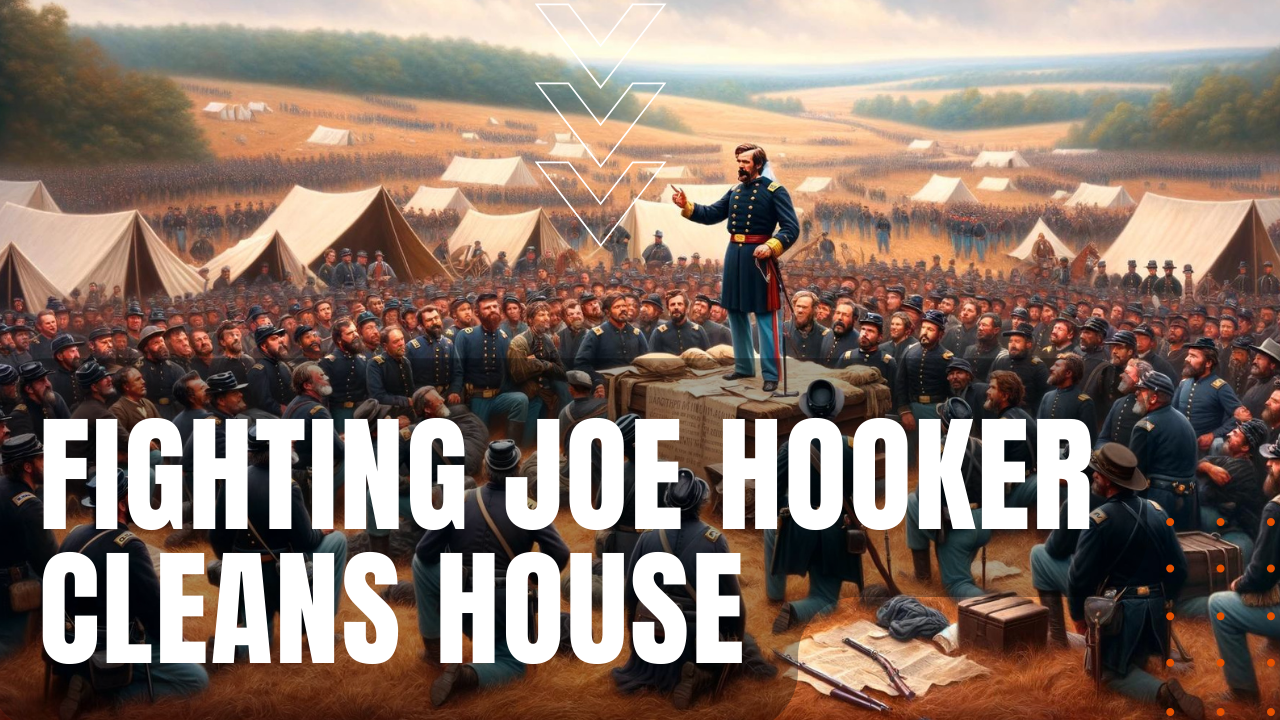Fighting Joe Hooker

After the Union Army of the Potomac suffered a staggering 12,653 casualties during their defeat at the Battle of Fredericksburg, army morale plummeted as desertions skyrocketed, reaching 200 per day at its peak, leading one soldier to write that the army was “fast approaching a mob.” Adding to an already rock bottom morale crisis, on January 20th, 1862, Potomac Army commander Maj. Gen. Ambrose E. Burnside ordered a flanking maneuver against the Confederate’s Army of Northern Virginia, against their encampment along the Rappahannock River.
Burnside’s Mud March
Now known as Burnside’s infamous “Mud March,” a two-day deluge turned roads into impassable quagmires, stalling wagons and artillery pieces, before the Union Army’s dispirited retreat to their encampments at Falmouth, leading some historians to equate the early winter misery at Falmouth, as the Civil War’s equivalent to Valley Forge. After Burnside was replaced by 48-year-old Maj. Gen. Joseph Hooker, nicknamed Fighting Joe, conditions and morale in the camps soon underwent a staggering turnaround under Hooker’s command, and while history would paint Fighting Joe Hooker as an arrogant, alcoholic womanizer, three months before his bloody defeat at Chancellorsville, Hooker’s organizational talents quickly improved conditions in the camps.
Major Housecleaning
Food was his first priority, ordering that his men receive fresh vegetables twice a week and dried legumes once a week. Camp bakeries were erected, providing soldiers with fresh bread four times a week, while sanitation improvements turned camps from indescribably foul to something far more livable. Hooker ordered his men to bury their garbage every day, dig drainage ditches around every cabin and move latrines far from company streets. By April of 1863, proof of Hooker’s housekeeping improvements became evident in reports filed by medical director, Maj. Johnathan Lettermen, revealing a 32 percent drop in potentially fatal diarrhea, a 28 percent drop in typhoid fever and the near elimination of cases of scurvy. Hooker also ordered his men to bathe twice a week, keep their uniforms and rifles clean and change their underwear at least once a week.
Decline in Desertions
Drills and inspections were reinstated, leading one soldier to write that conditions were “very different from what it was a month ago.” Desertions fell dramatically after Hooker instated a ten-day furlough rotation for homesick men, turning what was formerly called a “mob” into a place of, as one soldier wrote, “Cheerfulness, good order and military discipline,” making Fighting Joe Hooker, a commanding administrator during the darkest days of America’s war with itself.
